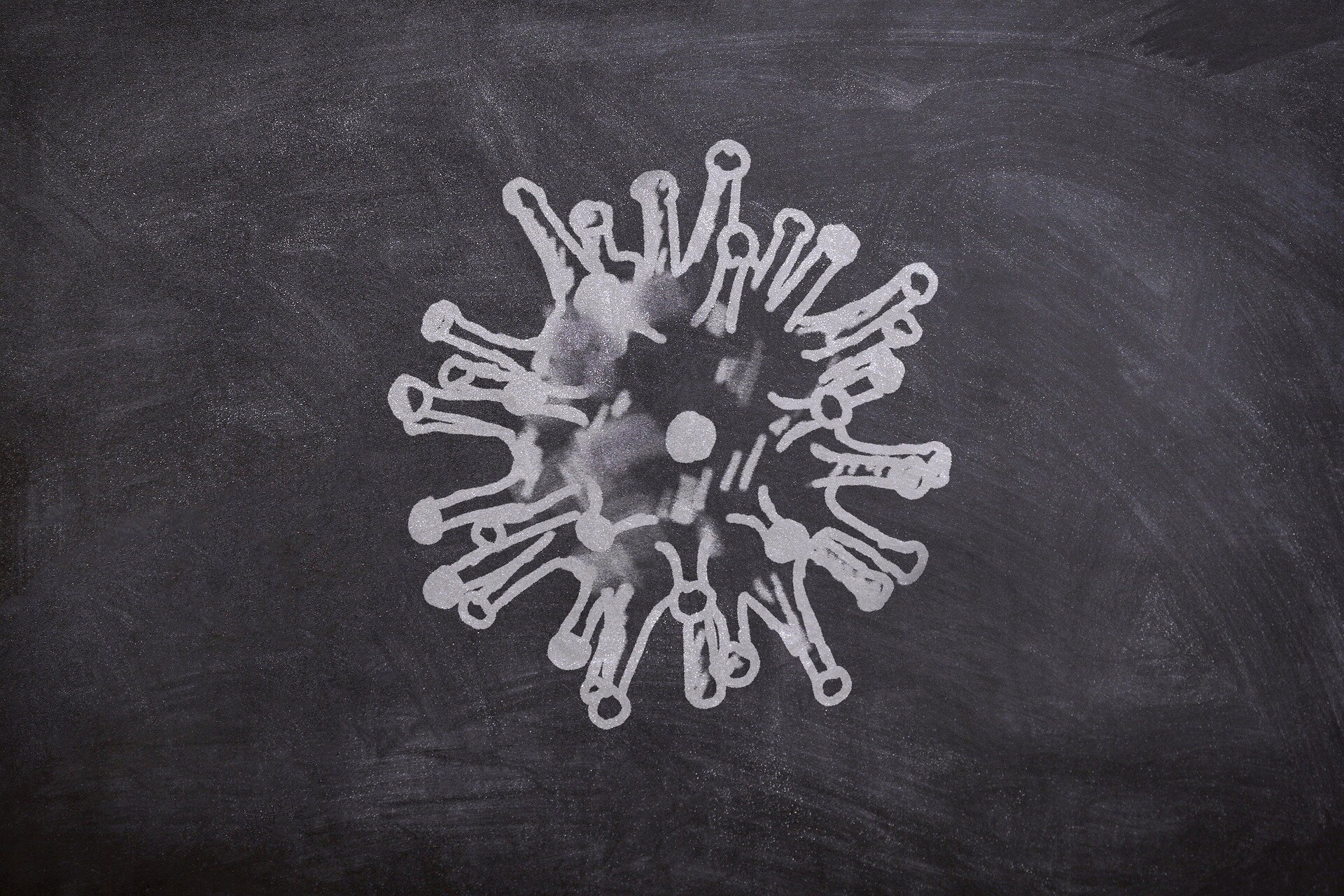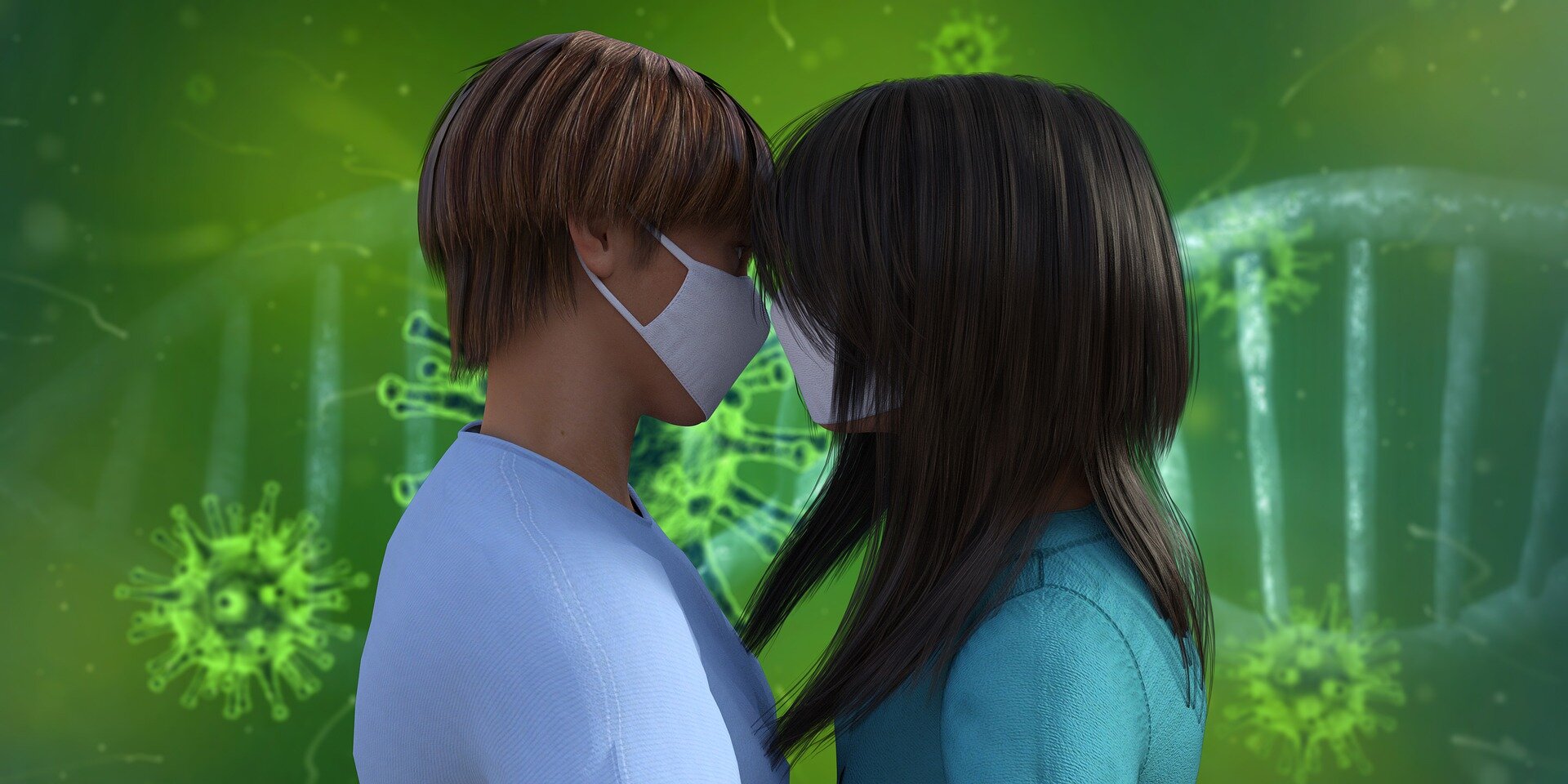From Face Masks to Body-Condoms: The Long-Term Effects of Social Distancing
Teaching Philosophy in the Age of Social Distancing
Never in a million years would I have guessed that I’d be teaching philosophy while wearing a mask in a classroom with blocked-off seats. (See CEI Lays Out Distanced Spaces for Fall Classes.) Such is the reality, it seems, of teaching philosophy in the age of social distancing. While I’m all for protecting the lives of my students and their families, and for preventing the spread of COVID-19, I can’t help but wonder, probably along with everyone else in America, what the long-term effects of this supposedly short-term social distancing will be.
Individual Liberty vs. The Common Good
Every national or global disaster seems to prompt a renewed discussion about individual liberty versus the common good, and about how much of our own freedom we’re willing to give up for the sake of our own protection. After September 11th, for example, we worried about the long-term effects of increased airport security and wondered when things would would return to normal so we could once again greet our incoming loved ones, or see them off, at the gate. How naive we were then. Normalcy has never returned; it seldom does.
The Long-Term Effects of Social Distancing
Today we are having a similar discussion about social distancing, face masks, and the long-term effects our social structures and on the way we relate to each other as people. Will we ever return to the days of handshakes, hugs, and intimate conversations? Or will we now live in constant fear of invisible viruses at the approach of every fellow human being, shirking backward out of our increasing biological disgust?
It won’t be too many years until an entire generation of Americans grows up never knowing what it’s like to go out in public without a mask, never really learning how to live for fear of an early death, the very thing that stoic philosophers through the ages have warned us against. (See Seneca’s Letters from a Stoic and Marcus Aurelius’s Meditations.) But, then, we also worried about generations of children glued to the television, then to the internet, and now to their smartphones, never going outside to play in the streets and parks or talking to their friends on the phone into the wee hours of the night, and about generations of teenagers and college students never knowing what it’s like to go out on a real date—or even being asked out on a real date in person instead of texting and messaging each other on their social media platforms of choice.
The New Normal?
Humans are resilient, and each generation is thrown into a world of new challenges and in which old ways of being have already faded into memory, both recent memory and ancient history. With every major change in society, Americans have had to reinvent their social structures and adapt to the latest social conventions. Americans, and humans in general, are remarkably resilient that way. From times of war to times of economic depression, Americans have pulled together. The danger with the social distancing trend, however, is that it will drive us further and further apart, until we finally view each other not as human beings worthy of each other’s closeness, contact, and affection, care but as carriers of COVID-19 or its future equivalent.
Although I plan to follow the college’s COVID-19 protocol (my new least-favorite word of the day) to the letter when classes start next week, I also plan to remind my students not to forget what life was like before the COVID-19 pandemic and protocols, lest they begin to mistake the cultural aberration of the new normal as somehow essential to human social interaction in general.
Humans have a short cultural memory, and we accept seemingly any new normal with open arms, however begrudgingly. This is both a blessing and a curse. It allows us to be highly adaptive to change, which has generally been good for the propagation of our species. But it also allows us to accept the most absurd and unacceptable of circumstances, as we tend to go with the flow instead of standing up and saying “No!”—whether individually or culturally—as could be seen in NAZI Germany when the average German citizen tended to go with the flow, out of fear, instead of standing up to their own new normal under Adolf Hitler in the 1930s and 1940s.
From Face Masks to Body Condoms
Care must be taken not to let the essence of human social interaction and connection be forever altered or, even worse, dismantled by something as ephemeral and fleeting as the COVID-19 pandemic. At some point, when the panic dies down and the possibility of normalcy is once again in the air instead of the virus du jour, it’s imperative that we don’t forget what normal human social interaction used to be, is, and should be once again, lest our children and their children and grandchildren after them grow up in a world full of face masks, plexiglass barriers, and antibacterial lotion (the future equivalents of the body-condom from The Naked Gun movie!) instead of hearty handshakes, toothy grins, and open arms.









